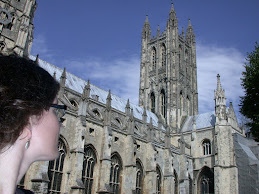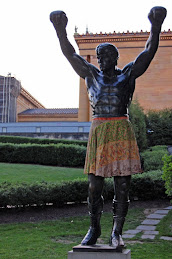I have got a few more books to add to my list of possibilities. And a few reactions.
A book about the formation of the government of the United States called American Creation: Triumphs and Tragedies at the Founding of the Republic. It is written by Joseph J. Ellis. From the review I read in the New York Times the books seems to be discussion of how at certain pivotal moments in history, the US constitution frames the boundaries and fences of government that vitriolic debate can take place without the destruction of the country and the peace. In other words, that the balance between the 3 branches means we can discuss explosive issues because no matter how strongly any one side feels, change will happen so slowly that it can be corrected or reversed.
From reading this review, I am intrigued because it seems to capture my sense of why our country has not devolved during the current presidential administration.
The two other books are about Latin: by Harry Mount, Carpe Diem: Put a Little Latin into Your Life and by Nicholas Ostler, Ad Infinitum: A Biography of Latin. The first one offers itself as a review of Latin grammar and vocabulary to help you remember enough of both to start reading Latin again. The second is a history of the language and its evolution. The second book sounds more appealing as it traces the language from pre-historical Rome to twenty-first century internet.
Another book is translated from the French and is about how to fake having read a book. The author is Pierre Bayard and the translator is Jeffrey Mehlman. The title is How to talk about Books you Haven't Read. For me as an English teacher the entire idea of this book is sacreligious, but on the other hand I know my students and even my own children don't see reading the way I did and do. For me reading transported me beyond the limitations of my locale and into a greater environment. Now they achieve the same action with no effort through computers which supply both visuals, sound, and plot.
But in the review by Jay McInerney in the New York Times this Sunday, there is one paragraph I want to quote in full: "Lest the reader or the nonreader, think that Bayard underestimates the power of reading, he proposes that we are all essentially literary constructs, defined by our own inner libraries: the books we've read, skimmed and heard about. 'We are the sum of these accumulated books,' he writes."
Now I find this idea rather intriguing...and it goes really back to St. Augustine's concept of the memory as a great repository that forms our identity. (I seem to be referring to Augustine quite a bit these days. I guess it is time to reread The Confessions, which I first read in an undergraduate English class as a prelude to understanding Dante's Divinia Comedia.) So the overall thrust is that we are the composite of all our experience -- whether psychic or physical. And thus the novels, characters, and words that echo in our minds form our identity.
Am I more like Hamlet the more often I teach him? Or would Macbeth be my alter ego? Or would my moral compass eschew the bloody Macbeth for the cerebral prince. And is that why the more often I have to teach Wuthering Heights the more repulsed I am by Heathcliff's misogyny and confounded that I was ever misled into thinking his love of Cathy was the pinnacle of romance?
Sunday, November 11, 2007
Friday, November 9, 2007
Swinging in Montana
During our weekend in Montana, we had the option to fly on two different swings. The first was your standard swing of two ropes attached to board. But the one everyone loved was the disk swing. This was just a circle of wood with a hole in the center for the rope. The rope was knotted securely under the swing and then tied even more securely to a branch at least 40 feet in the air.
At first, students took turns on the swing, pushing each other high in the air and squealing. But then they developed a new technique.
Two people got on the swing -- looking like a seated Push-Me-Pull-You. Then three or four folks on the ground pushed the two swingers in a huge circle or grabbed onto the end of the rope and give them a running surge of velocity! Talk about a sudden feeling of death as ground rushes beneath and trees come too close!
Thursday, November 8, 2007

Montana
For a single weekend in October, east met west as students and teachers from Philadelphia joined students and teachers from Montana to explore various forms of art. For each form of art -- photography, writing, theater, art -- we had generous mentors who led the workshops and encouraged everyone and shared their enthusiasm and stories.
We were hosted by two wonderful families who opened their homes to us and provided us the time and space to forge new relationships.
The picture at the right is one I took early one morning as the sun was rising. The view is to the south east. You can see one of the cabins where we stayed on the left. But behind the cabin and between the trees is the horizon of mountain and sky. Everywhere I looked, the sky arched above and the foothills and plains and river sculpted the view.
I have not been to Montana since my husband and I went hiking for two weeks in Glacier National Park. That was over 14 years ago. Since those years, I had forgotten the sweeping views of sky joining earth.
When we got off the plane in Billings and boarded the bus, I sat beside the window and felt my chest expand. I took deeper and deeper breaths, trying to inhale sky. How to describe that sensation of simultaneous exaltation and diminishment? I felt small and hushed, and yet paradoxically I felt enlarged and joyous. St. Augustine spoke of this sensation in his Confessions, as he described his envelopment in and by God. If I remember correctly, Augustine felt both insignificant before the Almighty and yet when joined to that presence through love, he felt blessed.
I don't claim to have a relationship with God. I only have this sensation of absolute awe and humility when looking at the unity of mountains and sky. And it has to be mountains unobscured by cities, houses, telephone poles, or even people. I don't want people crawling between me and that horizon. I want to be overtaken by the land and made into nothing by the vastness.
Subscribe to:
Comments (Atom)








